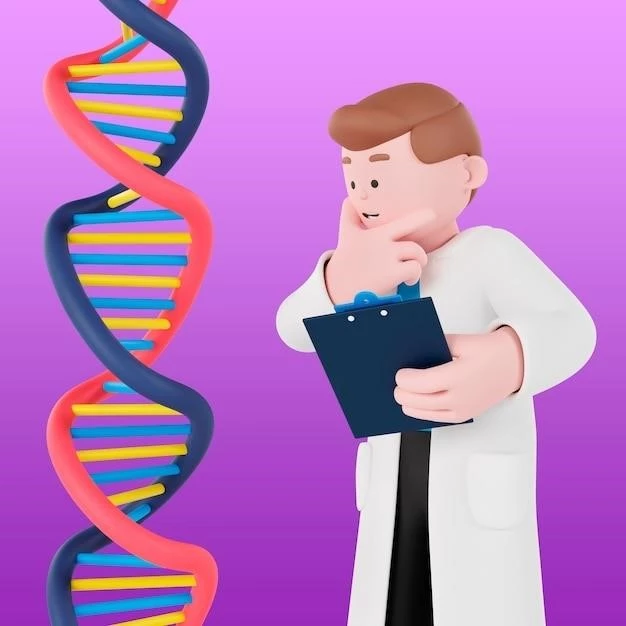Understanding CDG Syndrome Type 4 involves recognizing the complexities of this rare genetic disorder.
Overview of CDG Syndrome Type 4
The overview of CDG Syndrome Type 4 outlines a rare metabolic disorder characterized by protein glycosylation defects, leading to various systemic manifestations. It presents challenges in diagnosis and management due to its diverse clinical features and impacts on multiple organ systems.
Symptoms of CDG Syndrome Type 4
Exploring the diverse manifestations and presentations of CDG Syndrome Type 4.
Common Symptoms
The common symptoms of CDG Syndrome Type 4 encompass developmental delays٫ intellectual disability٫ failure to thrive٫ distinctive facial features٫ and abnormal brain structure. Additionally٫ individuals may exhibit liver dysfunction٫ seizures٫ and neurological impairments. Early recognition and comprehensive management are crucial in addressing these symptoms effectively.
Less Common Symptoms
Less common symptoms of CDG Syndrome Type 4 may include heart defects, kidney abnormalities, vision problems, hearing loss, and skeletal issues. Additionally, individuals might experience immune system dysfunction, endocrine disorders, and gastrointestinal complications. While these symptoms occur less frequently, they require diligent monitoring and specialized care when present.

Treatment Options for CDG Syndrome Type 4
Exploring the comprehensive approach to managing CDG Syndrome Type 4.
Medical Interventions
Medical interventions for CDG Syndrome Type 4 involve multidisciplinary care including close monitoring of developmental progress, addressing organ-specific complications, nutritional support, and pharmacological management of symptoms. Expert medical teams collaborate to provide personalized treatment plans to optimize the individual’s quality of life and well-being.
Therapies and Management Approaches
Therapies and management approaches for CDG Syndrome Type 4 encompass early intervention programs, physical and occupational therapy, speech therapy, nutritional counseling, and specialized education plans. These interventions aim to enhance developmental outcomes, address functional limitations, and support individuals with CDG Syndrome Type 4 in achieving their full potential.
Genetic Causes of CDG Syndrome Type 4
Examining the underlying genetic mutations responsible for CDG Syndrome Type 4.
Genetic Mutations Associated with CDG Syndrome Type 4
CDG Syndrome Type 4 is linked to mutations in the DDOST gene, affecting the enzyme responsible for protein glycosylation. These mutations disrupt normal cellular processes, leading to the characteristic symptoms and complications seen in individuals with this rare disorder. Understanding these genetic alterations is crucial for accurate diagnosis and targeted management strategies.
Inheritance Patterns
CDG Syndrome Type 4 follows an autosomal recessive inheritance pattern٫ meaning that individuals inherit one mutated gene from each parent. Carriers of a single mutated gene are typically asymptomatic. Understanding the inheritance patterns is essential for genetic counseling٫ family planning decisions٫ and early identification of at-risk individuals.
CDG Syndrome Type 4 in Children
Exploring the unique impacts of CDG Syndrome Type 4 on pediatric populations.
Impacts on Child Development
CDG Syndrome Type 4 can profoundly impact child development, leading to cognitive delays, motor skill impairments, and speech and language deficits. Early intervention strategies, tailored educational support, and therapies play a crucial role in addressing these developmental challenges and maximizing the potential for growth and learning in affected children.
Diagnosis and Early Intervention
Timely diagnosis of CDG Syndrome Type 4 is crucial for initiating early interventions that can help mitigate the impact of the condition on a child’s development. A multidisciplinary approach involving genetic testing, imaging studies, and clinical assessments is essential for accurate diagnosis. Early intervention programs, including therapies and educational support, are vital in promoting optimal outcomes and improving the quality of life for affected children.
Prognosis of CDG Syndrome Type 4
Evaluating the long-term outlook and factors influencing the prognosis of CDG Syndrome Type 4.
Long-Term Outlook
The long-term outlook for individuals with CDG Syndrome Type 4 varies based on the severity of symptoms٫ access to interventions٫ and quality of care received. While the condition is chronic and can present challenges٫ ongoing research and advances in medical care offer hope for improved quality of life and outcomes for individuals affected by CDG Syndrome Type 4.
Factors Influencing Prognosis
Several factors influence the prognosis of CDG Syndrome Type 4, including the extent of neurological and developmental impairments, the presence of organ complications, access to specialized care, early intervention strategies, and the individual’s response to treatment modalities. Ongoing monitoring, multidisciplinary management, and support systems play critical roles in shaping the overall prognosis for individuals with CDG Syndrome Type 4.
Research Advances in CDG Syndrome Type 4
Exploring the latest research developments in understanding and managing CDG Syndrome Type 4.
Current Studies and Findings
Current studies on CDG Syndrome Type 4 focus on elucidating novel genetic mutations, understanding the underlying biochemical pathways, exploring potential therapeutic targets, and developing personalized treatment approaches. Recent findings offer insights into disease mechanisms, paving the way for targeted interventions and improved outcomes for individuals affected by this complex disorder.
Potential Future Developments
Future developments in CDG Syndrome Type 4 research aim to advance precision medicine approaches, optimize early diagnostic tools, investigate gene therapy strategies, and enhance supportive care measures. The integration of cutting-edge technologies and collaborative research efforts hold promise for improving diagnostic accuracy, developing targeted therapies, and ultimately enhancing the quality of life for individuals living with CDG Syndrome Type 4.
Support Resources for CDG Syndrome Type 4
Exploring available support networks and resources for individuals with CDG Syndrome Type 4.
Support Organizations and Networks
Support organizations and networks dedicated to CDG Syndrome Type 4 provide valuable resources, including information, advocacy, caregiver support, and opportunities for community engagement. These organizations play a crucial role in raising awareness, facilitating research collaborations, and offering a platform for individuals and families affected by CDG Syndrome Type 4 to connect and access essential support services.
Accessing Clinical Trials and Services
Accessing clinical trials and services for CDG Syndrome Type 4 involves working closely with healthcare providers, genetic counselors, and research teams to explore available research studies, experimental treatments, and specialized care options. Participation in clinical trials can offer individuals opportunities to access cutting-edge therapies, contribute to scientific advancements, and potentially improve outcomes for individuals affected by CDG Syndrome Type 4.
